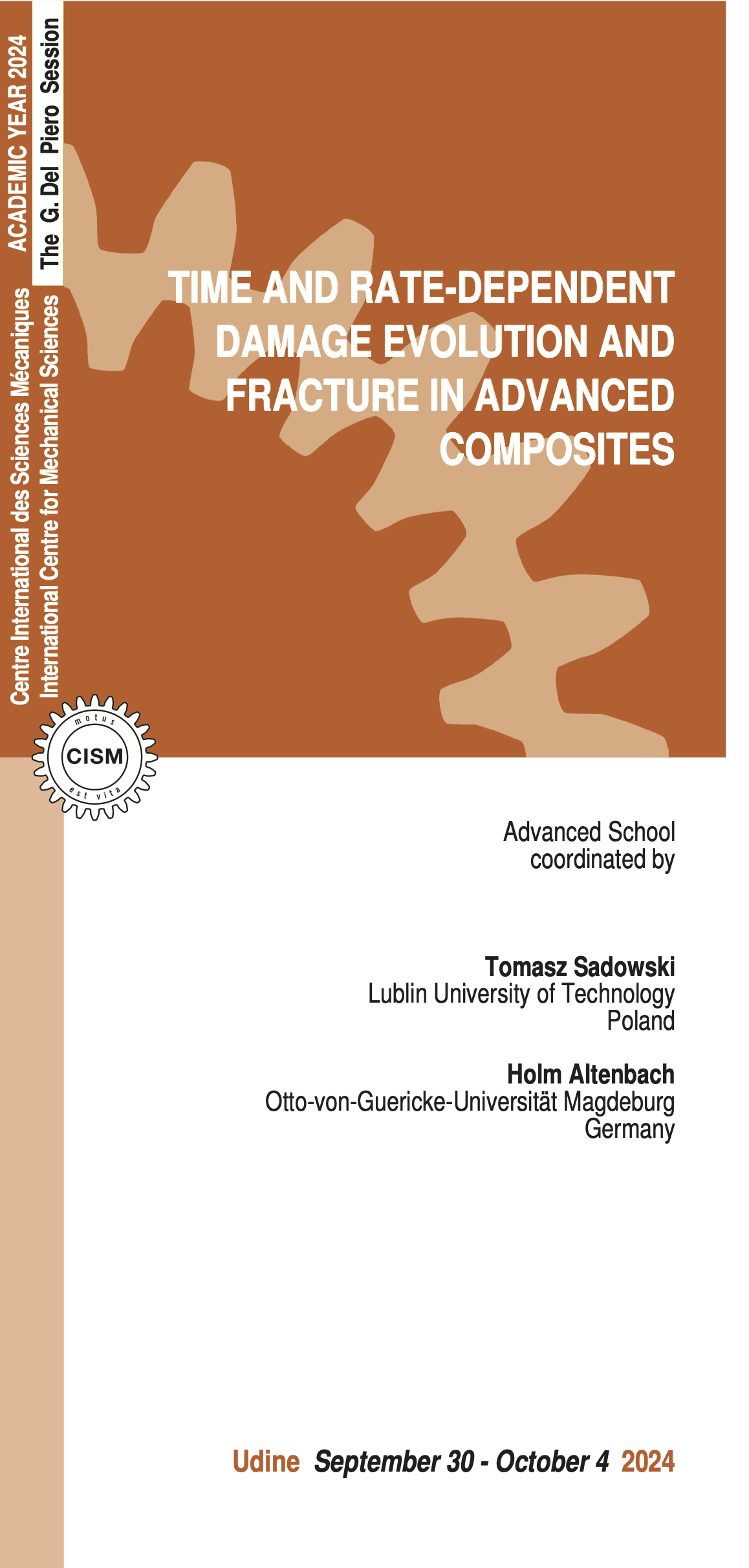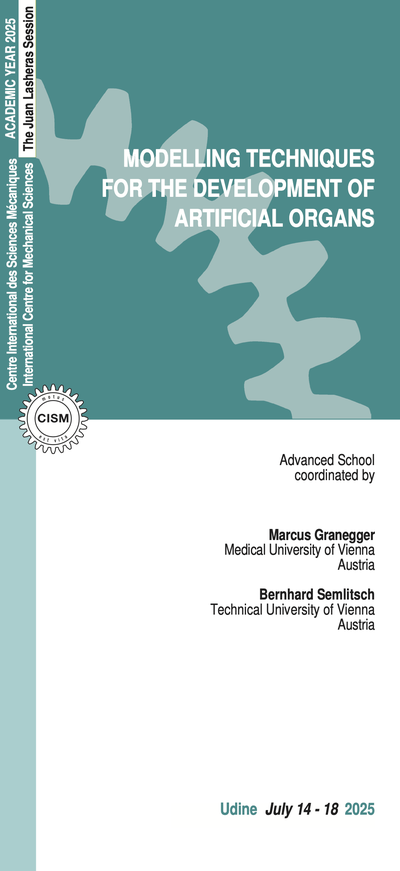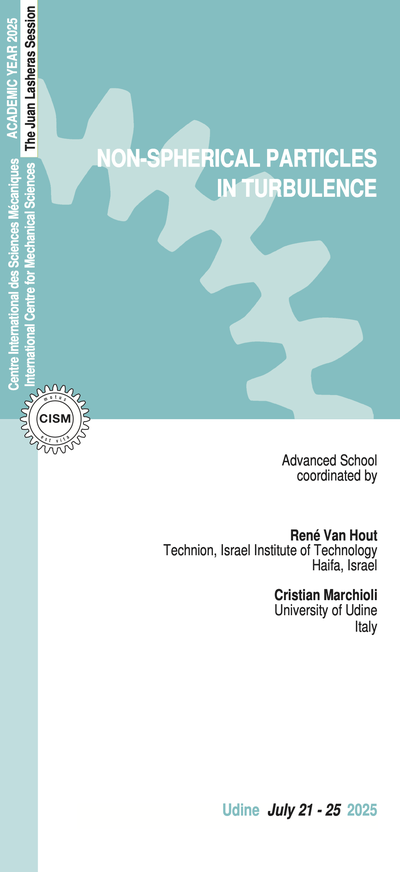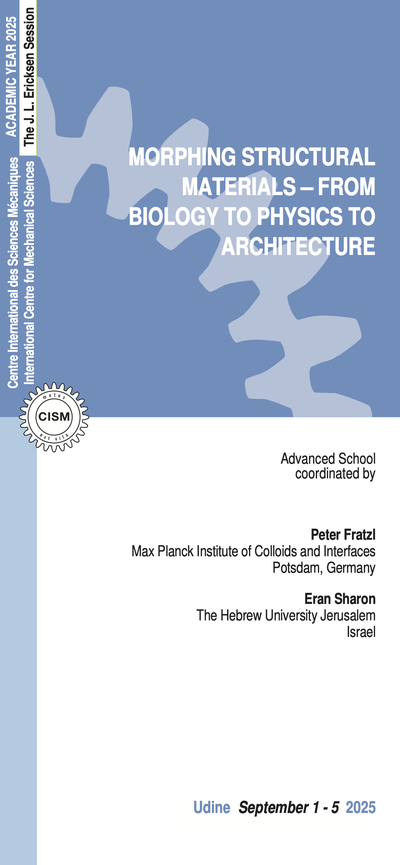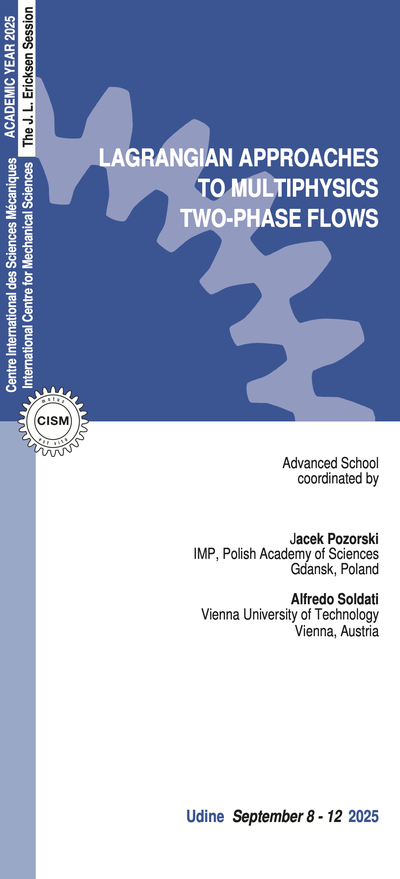Novel and advanced multiphase materials are required by various innovative industrial applications, e.g. in aerospace, military, aeronautics, automotive, civil, and other applications. The basic question in designing new composites is how to optimally arrange the reinforcing phase to get the required material response to the applied load. The most important of these are fibrous composites, laminates, and complex multiphase materials, including interpenetrating and functionally graded composites, with complicated architectures of an internal structure consisting of porosity, and different types of reinforcement. It is widely recognized that important macroscopic properties like macroscopic stiffness and strength are governed by multiphysics processes that occur at one to several scales below the level of observation.
A thorough understanding of how these processes influence the reduction of stiffness and strength is key to the analysis of existing, and the design of improved, complex materials.
The aim of this course is to present a series of lectures by researchers specialized in (1) multiscale modelling of complex materials, and (2) developing novel experimental methods of observation of damage and fracture processes in these materials subjected to high strain rate loading. The basic principles will be formulated of multiscale modelling strategies towards modern complex multiphase materials subjected to dynamical or impact loadings.
The study of how these various length scales and multiphysical processes (1) can influence damage and fracture processes of advanced composites and (2) can be bridged or considered simultaneously during a time- and rate-dependent material loading. They have a well-defined architecture or internal structure at the nano-, micro-, and mesolevels. For this reason, advances in multiscale modelling and analysis made here, pertain directly to classes of materials that either have a wider range of relevant microstructural scales, such as polymers, and metals, or have random microstructures, e.g. metal-matrix composites, fiber- reinforced laminates, interpenetrating phase composites, FGMs or cellular materials and voided solids.
With regard to ceramic composites (CCs) and ceramic matrix composites (CMCs) the damage and fracture processes will be described with a triple-scale approach. The important problem of the damage process of interfaces surrounding particles, grains, whiskers or fibres included in composites will be analysed for different properties of the inclusions and in different scales.
The challenge in modelling time-dependent problems is to solve space and time multiscale, multiphase, and multiphysics initial-boundary value problems. Therefore, various methods applicable to time- and rate-dependent problems in novel composite materials will be discussed during the course including FEM, phase- field, or peridynamics.
The experimental part of the lectures includes a description of the newest achievements in (1) micro-CT assessment of internal structures of complex composites, (2) testing under low-velocity impact including temperature effects, and (3) high-velocity strains experiments with application Split Hopkinson Pressure Bar.
R.Talreja, Failure Analysis of Composite Materials with Manufacturing Defects, CRC Press, 2024, pp 280.
H. Altenbach, J. Altenbach, W. Kissing: Mechanics of Composite Structural elements, 2nd ed. Springer Singapore, 2018.
T. Antoun, L. Seaman, D.R. Curran, G. Kanel, S. Razorenov, A. Utkin, Spall Fracture, Springer, Berlin, 2003.
V.F. Nesterenko, . Dynamics of heterogeneous materials. Springer-Verlag, New York, 2001.
M.A. Meyers, Dynamic Behavior of Materials. John Wiley & Sons, New York,1994.
C. Czarnota, Molinari, S. Mercier, Steady shock waves in porous metals: Viscosity and micro-inertia effects. International Journal of Plasticity (135), 102816, 2020.
E. Postek, T. Sadowski, Impact model of the Al2O3/ZrO2 composite by peridynamics. Compos. Struct., 271, 114071, 2021.
E. Linul, D. Pietras, T. Sadowski, L. Marsavina, D.K. Rajak, J. Kovacik, Crashworthiness performance of lightweight composite metallic foams at high temperatures, Compos. Part A 149,106516, 2021.
M. Tahani, E. Postek, T. Sadowski, Effect of vacancy defect content on the interdiffusion of cubic and hexagonal SiC/Al interfaces: A molecular dynamics study. Molecules. 28:744-763, 2023.
M. Fathalian, E. Postek, T. Sadowski, Mechanical and electronic properties of Al(111)/6H-SiC interfaces: A DFT study, Molecules, 28(11):4345-1-19, 2023.
6 lectures on: Time-dependent Damage and Failure Events in Advanced Composites. Examples of different types of damage and failure behaviour in advanced composites; rational description of damage and failure; classical and non-classical models for new advanced materials like foams, etc.
4 lectures on: Modelling and experimental characterization of different nature materials under dynamic loading. Experimental methods like SHPB, shock wave experiments, dynamic ring expansion, and perforation; analytical and numerical modelling of high strain rates response of heterogeneous materials including voided solids.
6 lectures on: Computational Approaches to Intralaminar and Interlaminar Failure. Discussion phenomena in laminated composite structures leading to failure: matrix cracking, inter and intra-laminar cracking, and pull-out of fibres. Nonlinearities at macro, meso and micro-scales. Cohesive and damage models, interface elements in XFEM.
5 lectures on: Static and dynamic behavior of cellular materials. Damage and fracture processes of cellular structures and composite structures incorporating cellularmaterials; static and dynamic loading including impact and fatigue; the size effect, the notch effect,and the mixed-mode loading; damage identification.
5 lectures on: Description of Damage and Fracture Processes in Polycrystalline Ceramics, Interpenetrated and FGM Composites. Damage and fracture processes at high strain rates will be described by micromechanical modelling of multiphase composites and experimental verification of damage and failure criteria under impact.
6 lectures on: Manufacturing sensitive design strategy for composite structures, and manufacturing methods. Quantification of manufacturing defects. Microstructural descriptors. Failure mechanisms in the presence of manufacturing defects. Phenomenological failure models. Multiscale modelling of failure.
6 lectures on: Damage Mechanics: Theory, Computations, and Applications. Recent advances in continuum damage mechanics for metal matrix composites; different constitutive models; different scales approach in damage mechanics: overall, local, and interfacial; various experimental damage investigations; damage fabric tensors.
